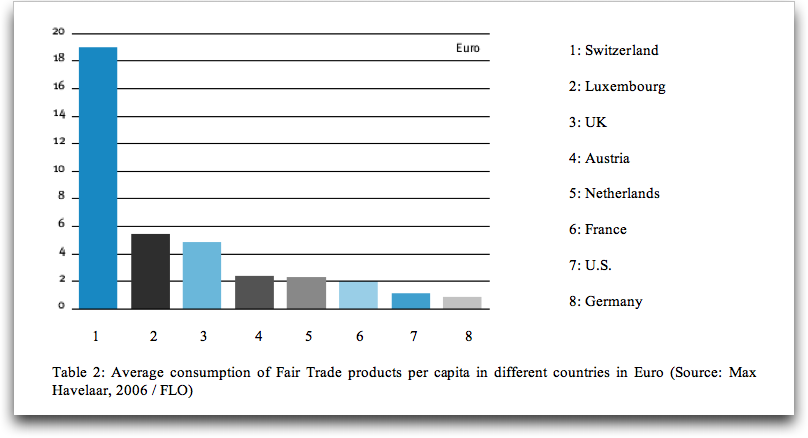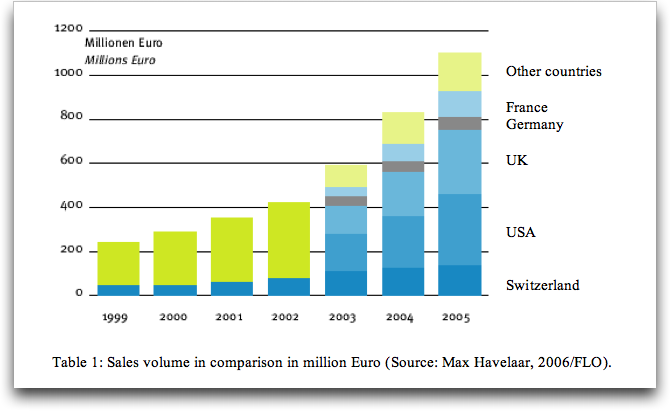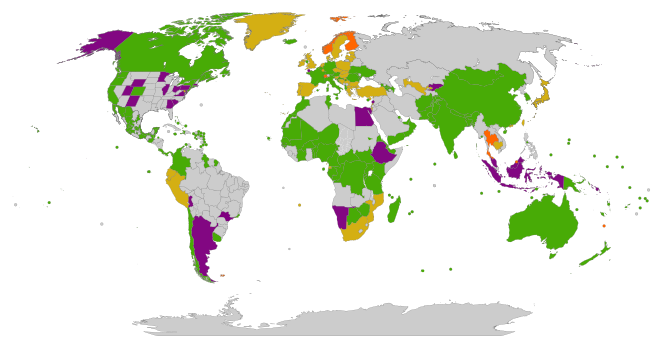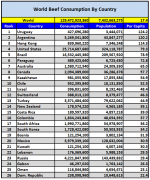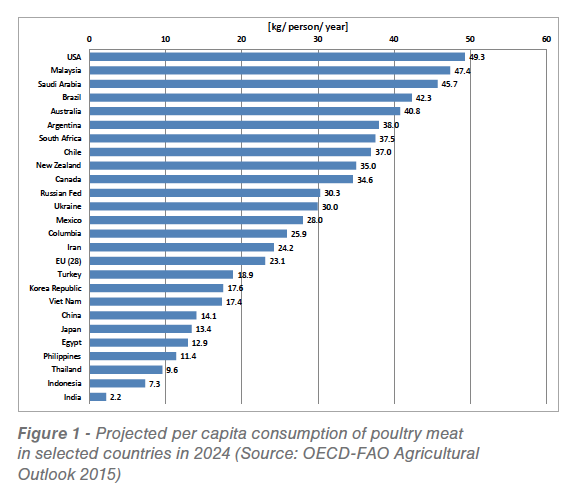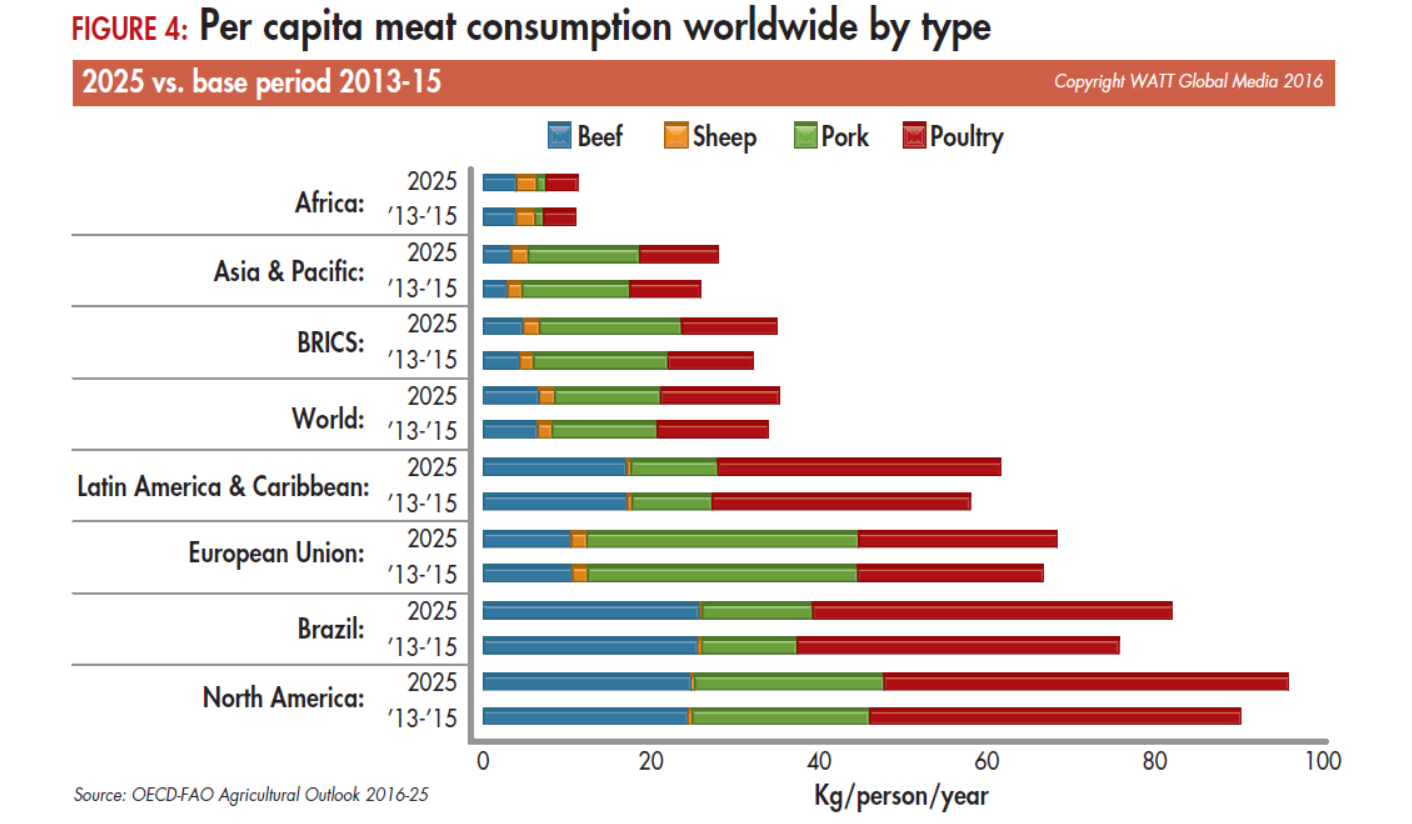Environmentalism
I have long been a defender of the environment. I joined the WWF when I was about 9 years old. I still donate regularly. I have since joined or supported to many other conservation groups such as:
- The Nature Conservancy
- Rainforest Alliance
- Rainforest Action Network
- Rainforest Rescue (you can support them through free online petitions too)
- Save the Elephants
I have never really liked the aggressive (sometimes almost sociopathic) approach of Greenpeace though. Furthermore Greenpeace is against genetic engineering and nuclear energy, which I still is only caused by ignorance of their part. There are pros and cons about nuclear plants (see this Kurzgezagt video that summarise them perfectly), but the pros win hands down when it comes to the much safer new generation reactors.
Solar panels
Global warming is a major concern nowadays. You can help fight it by investing (with a very reasonable profit) in solar panels in developing countries with Trine, a Swedish company. It goes without saying that I have installed solar panels on my house. But one house is not enough. To really make a difference, help thousands of people get solar energy. Rich countries are trying to phase out dirty power plants (coal, oil, gas). Developing countries need to choose how they are going to power their future as they industrialise and their population increase. It's essential that their future stays green. The world just can't afford 2 or 3 more industrial, polluting China's (and fortunately the Chinese are now starting to increase their proportion of clean and renewable energy, but that will take time).
Recycling
When we see only what plastic pollution does to our planet, it's easy to feel like our future is doomed to live amongst piles of rubbish/trash. Yet it's easy to recycle and limit the purchase of plastic packaging and, even worse, non-recyclable packages or products. I take great care to recycle as much as possible: plastic containers, other plastics, cans, other metals, paper, glass, batteries, electronics... Please do it too and don't forget to bring chemicals and electric/electronic products to your local recycling centre.
Buying responsibly
I take increasingly great care in choosing companies that are sustainable, respect the environment and human rights.
The destruction of the Amazon and other forests has been a subject of great concern for me since I was a child. It's not just the cutting or burning of trees, but the destruction of whole ecosystems and the disappearance of about 200 species per day (that's 73,000 per year, so millions since my childhood). I feel powerless to do anything about it, especially because so may greedy companies have no qualms destroying those forests (often by just burning them to create farmland, not even for the wood).
What's important is to protect rainforests from destruction (especially by burning) as this is what causes of loss of species. Planting trees is good, but trees will grow back by themselves anyway unless the land is used for plantations (palm, coffee, soy, etc.) or cattle ranches. What really hurts the planet is the irreversible loss of biodiversity. So replanting the vast stretches of the Amazon after it has burned won't help if the harm has already been done.
One of the most important thing to do to prevent deforestation (especially if you live on the American continent), but also to reduce global warming and improve your health, is to reduce your beef consumption. Generally meat has a major negative impact on the environment because of all the agricultural land it requires compared to plant-based food. I strongly recommend this short video to understand why meat is bad, and beef is the worst of all. A lot of people cannot give up meat. At least you can choose chicken, turkey or other fowls instead of red meat.
Another way to save the rainforests is to buy food products that are Fairtrade and respect the environment (such as FSC and Rainforest Alliance labels). It's especially important for tropical products like coffee, tea, chocolate, bananas, coconut and the like. Avoid products with palm oil as palm plantations are one of the main causes of rainforest destruction.
To help you choose ecologically minded companies, please check the CDP website. They give a score from A to F to most of the major companies worldwide (as well as cities) for the sustainability regarding 3 categories: climate change, water security and deforestation.
Humanitarianism
All human beings share the same need for safety (from violence, infectious diseases, pollution), food and a minimum of comfort. In countries where wars, famine and diseases claim the lives of many, people have more children to make up for it, hoping that at least some will survive. Once countries become more peaceful, wealthier and healthier people automatically reduce their number of children to dedicate more time to their children's education and well-being, but also because it is a heavy personal investment in time, energy and money to have lots of children.
The world population now exceeds 7 billion and is set to increase to 9 or 10 billion by the end of the century. This will put additional pressure on the Earth's resources and cause more global warming, which in turn may lead to failing crops or lack or water in drier regions. To avoid a global catastrophe, it's essential that poorer countries get healthier, wealthier and more peaceful as quickly as possible, so that they can complete their demographic transition and adopt clean energy and sustainable agricultural practices faster. Empowering women by educating them and increasing gender equality is equally important to achieve proper family planning and thus allowing families to dedicate more resources on fewer children, which translates in better education and increased wealth, health and happiness.
I really like what the Bill & Melinda Gates Foundation do, especially to empower women in poorer countries and eradicate infectious diseases like polio and malaria. AFAIK it's not possible to donate as the foundation is funded by Bill Gates's personal fortune. There are of course many other charities that will act as effectively. I have done my research and the 5 big charities that will manage your donations optimally for the issues that matter the most and in the most effective way possible are:
- Concern Worldwide : engaged in long-term development work in the world's poorest countries.
- Effective Altruism Global : uses high-quality evidence and careful reasoning to work out how to help others as much as possible.
- GiveWell : redirects donations to charities that save or improve lives the most per dollar (evaluating the cost-effectiveness of the organizations).
- InterAction : is the largest alliance of international NGOs and partners in the United States and aims at eliminating extreme poverty, safeguard a sustainable planet, promote peace, etc.
- UNICEF : aims to immunise children, enhance childhood and maternal nutrition, improve sanitation, promote education in poorer countries.
Microfinancing
Instead of giving money to charities to help people in developing countries, you can finance their projects directly through microfinancing. It's easy to lend money to entrepreneurs and they are almost guaranteed to pay you back (the default rate on altruistic loans is very low, usually about 2 or 3%, and in my experience less than 1%). The most famous is probably Kiva, based in San Francisco, but I have also used the UK-based Lendwithcare. You can choose the sectors and individual projects in which you want to help.
I give priority to improving sanitation (a sure way to avoid the spread of infectious diseases) and installing solar panels. The latter are not just a way to fight global warming. It provides clean electricity to people who often didn't have any electricity before, which is a first step towards better health (no smoke from fire cooking or candle light) and improved education (people can read at night or have a smartphone or computer to educate themselves).
Last edited:


